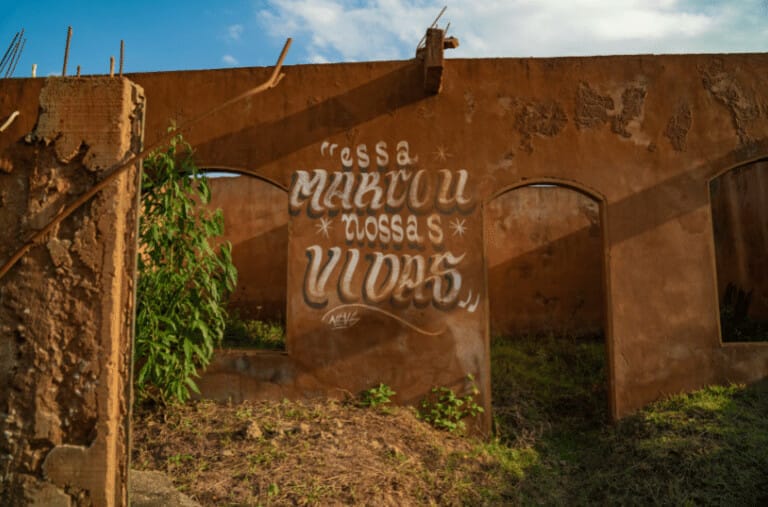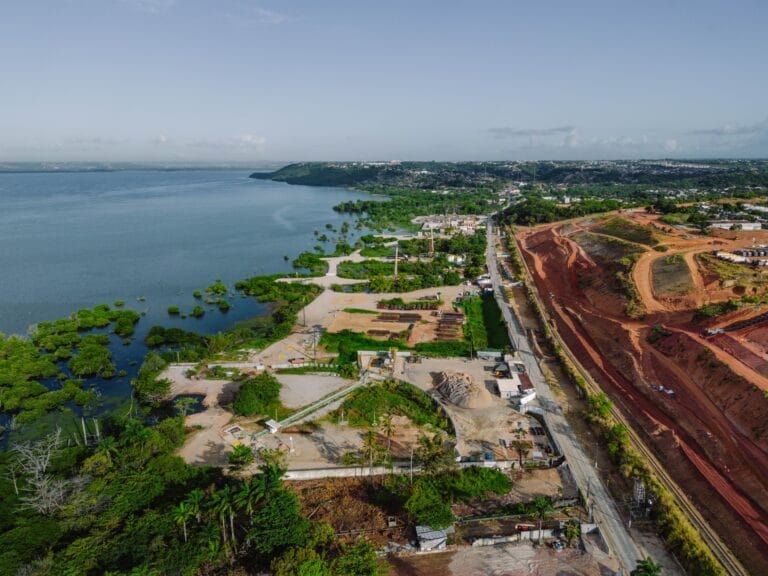The victims of the Mariana Dam disaster in Brazil intend to appeal after a first instance English court judgment not to proceed with their multi-billion pound case against mining giant BHP over their ‘ultimate responsibility’ for the incident, in which an iron-ore tailings dam collapsed, unleashing the worst environmental disaster in Brazil’s history.
After an initial hearing in Manchester in July, Mr Justice Turner today (09 November) published a decision to refuse to accept jurisdiction, just over five years to the day since the mining waste dam near Mariana burst, releasing a torrent of toxic sludge that killed 19 people, destroying communities and contaminating waterways for hundreds of miles.
Lawyers for the 700,000 claimants maintain that dual-listed Anglo-Australian company BHP should face action in the courts of the nation in which they are headquartered – England – and they will now take their case to the court of appeal.
The claimants argue that redress achieved in Brazil has been entirely inadequate, with BHP largely protected from legal consequences to date, and that they have the right to pursue the case against BHP in England.
Local leaders say that the reparations BHP claims to have made “only exist on paper” and that the redress scheme set up by the miners, the Renova Foundation, is a failure.
On behalf of the claimants, Tom Goodhead, Global Managing Partner, said: “BHP has succeeded, once again, in delaying the provision of full redress for the victims of the worst environmental disaster in Brazilian history. BHP’s actions, both in England and in Brazil, has resulted in a fundamentally flawed judgment that we intend to appeal immediately.
“Elements of the judgment have no proper basis in both English and European law, such that we are overwhelmingly confident that it will be overturned. We will continue to fight ceaselessly, for however long it takes, in any court in the world to ensure that BHP is held accountable for its actions.
“BHP have arrogantly and disgracefully labelled this litigation as ‘pointless and wasteful’. They have argued in court that full redress is available to the victims in Brazil when that is fundamentally not the case. The victims see that. The United Nations sees that. And we have every confidence that the Court of Appeal will see that.”
Duarte Junior, the Mayor of Mariana, believes that English courts must hear their case.
Duarte said: “For five long years, we have been frustrated, trying to rebuild our lives and communities in the face of the companies who are responsible for the disaster. Compensation so far has been completely inadequate, and every day we still live with the effects of what happened.
“This case represents the hopes and the rights of every individual in Mariana and beyond. BHP did not respect our rights in Brazil. This case in England should force them to acknowledge our rights now.”
Silvério da Luz, the Mayor of Rio Doce, a municipality named for the river changed beyond recognition by the dam’s collapse and the release of millions of cubic metres of toxic iron-ore tailings, believes that BHP has misled the courts.
“This decision will be of great importance for all of us,” da Luz said. “We heard arguments from BHP that simply do not match reality. The reparations they claim to have made only exist on paper. We must be heard, and we are hopeful that this case will bring about justice.”
Their feelings are echoed by UN Special Rapporteur Baskut Tuncak, whose September 2020 report alleged that those responsible for the disaster had failed to effectively support or compensate victims, specifically highlighting the inadequacies of the Renova Foundation administered by the miners.
Tuncak wrote: “In the aftermath of the disaster, BHP and Vale rushed to create the Renova Foundation to provide the affected communities an effective remedy. Unfortunately, the true purpose of the Renova Foundation appears to limit the liability of BHP and Vale, rather than provide any semblance of an effective remedy. Institutional shortcomings are well documented in literature and litigation. Today, none of 42 projects are on track.”
In October, Brazilian federal prosecutors accused BHP and Vale, the co-owners of the dam, of colluding with a Brazilian judge to fix compensation for victims, and of interfering with the lawsuit against BHP in the UK.
Prosecutors in the state of Minas Gerais criticised the judge, who accepted the imposition of compensation limits for plaintiffs that sought compensation, and then extended the limits to all victims in Baixo Guandu, Espirito Santo state, without the participation of the prosecution office. The decision would prevent many victims from claiming appropriate compensation via the action in England.









